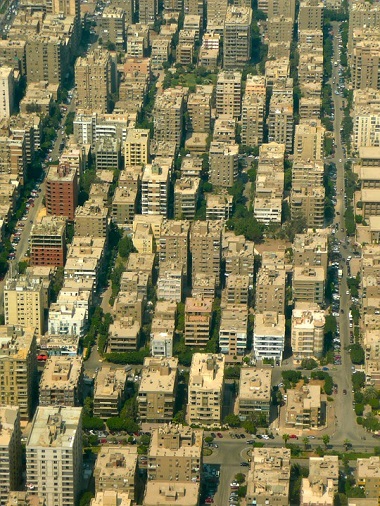Flying into Cairo, the first thing you notice is the size. Three and a half times more populous than Paris, the city is a sprawling landscape of nearly identical, dusty brown apartment buildings as far as the eye can see—or as far as a curious passenger on a rapidly descending airplane can see from a smudged airplane window.
Tourism has been a critical part of the country’s economy, but the number of tourists declined following the 2011 Egyptian revolution. Between 2010 and 2013, the number of tourists tumbled 35 percent.
A post-revolution Egypt is still struggling to regain that lost revenue—and reshape the country’s image to encourage travelers to visit the ancient pyramids of Giza, crystal clear waters of the Red Sea resort towns, or fascinating museums of Alexandria. However, just today the Daily News Egypt reported on the latest from Egypt’s official statistical agency, the Central Agency for Public Mobilization and Statistics: tourism this February fell by more than 45 percent over last February following the October crash of a Russian plane leaving the Egyptian resort city of Sharm el-Sheikh. For a country that depends heavily on tourism, drops in the number of tourists can mean the difference between dinner on the table and going hungry.
It’s against this backdrop that IFPRI saw opportunity to affect change. Last month, IFPRI opened a program office in Cairo to produce scientific evidence and build national capacity in a country where reliable data can be hard to find. Funded mainly by the United States Agency for International Development (USAID), the office’s goal is to raise incomes of the rural poor and improve food and nutrition security in Egypt.
More than one in five children under five years of age are stunted, according to the 2015 Global Hunger Index. And according to a 2014 study in the British medical journal The Lancet, nearly 70 percent of adult Egyptians are considered overweight. The combination of a high obesity rate coupled with a troubled economy and a population aching to improve its image in the world presents the IFPRI researchers in Cairo with an opportunity to research how innovation and policy can improve lives in the region.
The hard work is already underway—IFPRI’s Perrihan Al-Riffai and Clemens Breisinger worked with researchers from Maastricht University and the Kiel Institute for the World Economy to examine how investments in renewable energy can boost economic development. They found that Egypt should focus more heavily on the generation of wind power due to the fact it is the only renewable energy source that is competitive without subsidies and generally has favorable outcomes for economic growth, employment, and poverty reduction.
Specifically, they concluded that the plan should be coupled with an overall reduction in energy subsidies and that it’s important to keep in mind that renewables are not a complete solution when it comes to boosting economic development and helping the rural poor. Investments in renewable energy can create jobs, but their impact in helping the poor has been modest.
Stay tuned to IFPRI’s Egypt Strategy Support Program website for the latest news out of Cairo, and check out some of the tools that are housed there, including the Arab Spatial Mapping Tool, which provides an impressive visual overview of the Middle East and North Africa region on nutrition and economic statistics, climate- and conflict-related food shocks, government investment in agricultural R&D, and more.
It’s a time for change and innovation in Cairo, one of the world’s oldest cities. And IFPRI is excited to be at the forefront. Our researchers are busy, our office is open, and our eyes are fixed on a more food-secure future.







